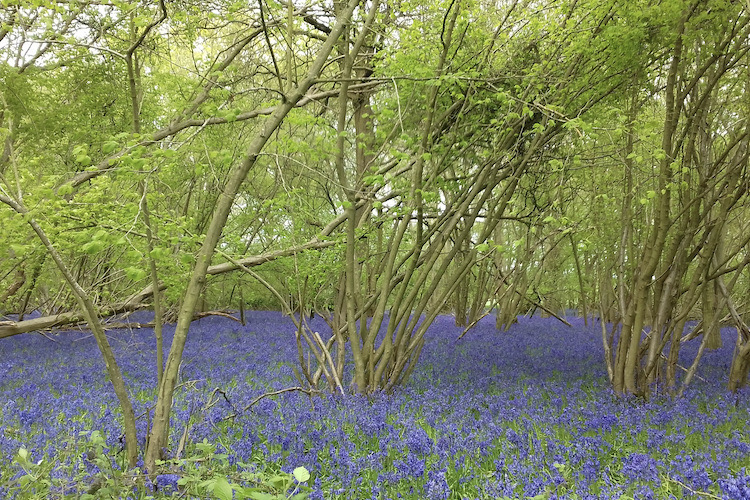
Flavio takes helm at Walsingham Multi Academy Trust
May 12, 2021
John to ride the Via Beata for homelessness charity
May 14, 2021Beginning at Pentecost, we celebrate the anniversary of Pope Francis’ encyclical, Laudato Si’. Jane Crone from CAFOD in East Anglia invites us to reclaim Our Common Home.
On May 24, 2015, Pope Francis signed his second encyclical, Laudato Si’. Addressed to every living person, it called for a dialogue about the future of the planet. As we approach Laudato Si’ week between 16- 25 May, let’s take time to think about Our Common Home.
The Covid crisis has taught us that life can change very quickly. Our relationships and ways of thinking and living have been irreversibly shaken up. Knowing that the future will be different, we talk about ‘building back better or differently’ and of a ‘new normal’. In his book ‘Let Us Dream’, Pope Francis calls our era a time of ‘reckoning’ but also a time of choices and opportunity. Reflecting on his own times of crisis or ‘personal Covids’ he says: “What I learned was that you suffer a lot, but if you allow it to change you, you come out better, but if you dig in, you come out worse.”
In the light of the pandemic, it’s no coincidence that Laudato Si Week 2021 has a bold theme: “for we know things can change” (LS 13). After all we have been through this year, these words must resonate with us all. Issued just before the Paris Climate Conference, Laudato Si’ responds to a different, yet related crisis – that of the damage human activity is doing to the natural world and the effect this has on the world’s poorest people, who contribute least to the climate crisis. Hearing ’the cry of the earth and the cry of the poor’ (LS49) calls us to an ecological conversion, to adopt an integral ecology which combines the social debate on justice with the scientific debate on the environment.
Answer Pope Francis’s call to action and help us Reclaim Our Common Home
The United Nations Intergovernmental Panel on Climate Change has been assessing the scientific basis of climate change and its impact on the earth since 1988. Yet, since 1988 global warming has increased at a faster rate than before, hitting the world’s poorest hardest, resulting in hunger, migration and conflict. This brings us to ask, “Why don’t we change our ways? Don’t we care about what’s happening to the earth?” The sad truth is that most people only change their ways when something directly affects them. The rich and powerful cause the most damage to the earth but are least affected by its consequences, while people living on the margins contribute least damage to the environment and suffer the most. No wonder things don’t change.
Despite the enormity of the climate crisis, Laudato Si’ is a deeply hopeful document which sees and judges ‘the signs of the times’ in the light of scripture, calling for dialogue, ecological conversion and action. Chapter two, The Gospel of Creation, shows how human life is lived in relationship with God, our neighbour and the earth, starting from the story of creation, moving through the Old Testament and into the gospels. It calls us to recognise that we have not cared and tended for the created world as we should, causing these relationships to break down.
The amazing level of participation in CAFOD campaigns and Laudato Si week events proves that people of faith care deeply about the environment and Our Common Home. In our Diocese of East Anglia five parishes have received the Live Simply award for living sustainably with creation and in solidarity with the poor. The Gospel of Creation shows us this is because people of faith believe that God reveals himself through the story of creation in three ways. Firstly, God reveals himself in the wonders of the created world, as Saint John Paul II said: “God has written a precious book, whose letters are the multitude of created things present in the universe.” (Catechesis 2002, quoted in LS 85). This has special resonance in a year in which restrictions have retaught us to appreciate the wonders of creation such as birdsong, spring bluebell woods and open-air meetings with friends.
Many of us will be praying the Catholic Bishops Conference of England and Wales (cbcew.org.uk) God Who Speaks team Pentecost Novena of readings and prayers drawn from the Bible and recent Papal teaching.
Secondly, the Gospels picture an incarnate, earthly Jesus attentive to and delighting in the beauty of creation and teaching through images drawn from the created world around him, for example, tiny mustard seeds, the birds of the air or the lilies of the fields. While at the same time his relationship with creation has a unique, special and wonderous harmony: “What sort of man is this, even the winds and the sea obey him” (Matt 7 v 28).
Thirdly, the New Testament shows us a risen, cosmic Christ in and for whom all creation exists who penetrates every corner of the universe with his love. The phrase ‘all things’ powerfully resounds through many gospel texts, for example in John 1 v 3: “Through him all things were made”, or Colossians 1 v 17: “He is before all things, and in him all things hold together.”
If you’re inspired by Laudato Si’ and believe that “things can change” (LS 13), see how you can bring Pope Francis’s message to your MP as politicians plan for life after the pandemic. Please do contact me at eastanglia@cafod.org.ukif you have any questions.
A last thought if – like me – you enjoy art and find it a helpful way to engage with scripture, do take a look at the reflection on Colossians chapter 1 online exhibition from Visual Commentary on Scripture Cosmic Christ and his Gospel.
Pictured above is Jane Crone





